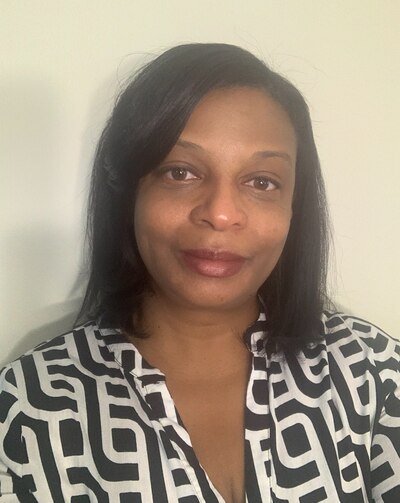I recently received five thank you notes saying that I had been a good teacher. I also got an invite to a graduation party.
These were nice gestures, but the truth is, I don’t feel like a good teacher. In fact, this past school year, I doggy paddled in self-pity for being in this position — involuntarily reassigned from my instructional coaching position to teaching full-time.

The teacher shortage in my district meant that central office staff who were still part of the teachers union would once again become classroom teachers. I would be teaching 12th grade English, African-American literature, and speech. Finding my sea legs was hard, and I wasn’t excited about all that would be required of me — quickly assessing student work, adjusting and re-adjusting instruction, and keeping large groups of students off their devices. Students carried their trauma and pain into the classroom; as an empathic person, it impacted me daily.
It felt like many students were biding their time in a system they couldn’t escape. Some teens told me that school was an obstacle on the way into the real world.
Meanwhile, I felt so poorly equipped for the job before me. And yet I was determined to reduce the harm and offer something different in my African-American literature and speech electives. I introduced my students to some of the standard bearers of African American literature, such as Gwendolyn Brooks, August Wilson, and Lorraine Hansberry, and had them do research on topics relevant to the texts. Sure, they preferred to write notes passively from a PowerPoint, but my training taught me that students learn by thinking and doing.
As an instructional coach for six years prior, I loved working with educators and students one-on-one and in small groups. In those settings, I was able to assess students’ needs and push them harder and assist teachers with their lesson planning. It isn’t an efficient way to teach. Work takes longer to complete, and not all students are on task as I offer individualized instruction to their peers. But I saw real progress.
As the teacher of record, I did my best to bring practices from my coaching years into my classroom. For example, when students were nervous about giving speeches to the entire class, I had them speak in front of three or four students.
My students saw something in me that I couldn’t see in myself.
One day, after students delivered their speeches, I said, “Tell me one thing you did well and one thing that you need to work on.” I never had a student say that they did everything perfectly; their responses were thoughtful. I wanted them to develop a habit of being self-reflective. Sometimes, I had them grade themselves.
Throughout the year, I gave my students different opportunities to practice thinking on their feet, conducting research, and making videos. We played games like Liar Liar, charades, and Finish the Story. Eventually, they raised their heads and looked at me as they spoke, and they eased into speaking before their entire class. Their classmates cheered them on. So did I.
And in their end-of-year notes, my students were generous with their praise. “I always appreciate the talks we had after class, they meant a lot to me. I consider you a friend of mine,” wrote one student. “Thank you for all of your spectacular teaching! You really helped me develop my voice!” wrote another. My students told me they learned from me that it is OK not to be OK. They said they now understood the importance of giving themselves space to get something wrong and space to grow.
I doubted myself often this past year. In my lowest moments, I felt like a failure, wondering what had happened to the teacher I had once been. But my students saw something in me that I couldn’t see in myself. They saw in me a good teacher even if I didn’t feel like one. They reminded me that my heart, my grace, and my desire to do better in an imperfect and sometimes chaotic system were more than enough.
Yvette J. Green is originally from Nashville and has lived in the Maryland/Washington, D.C., area for over 20 years. She is a mother of two sons, a former educator, and a freelance writer. Her writing has appeared in Salon, Slate, Viator, midnight & indigo, and 45th Parallel, among other publications.



